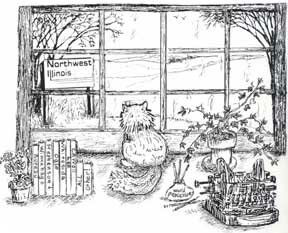Discover rewarding casino experiences. 
|
“The latter was coming they were assured and that a station as to be located here was also assured to those wise, eager purchasers of lots. It was felt by many that that Village determined to fight against it, to fight against Fate ...” The writer of the above, (taken in part from an early twentieth century Ogle County history) is an opinion of Polo’s history; being ill-recorded is quite curious because there were many sources even at that period telling quite broadly of its past. Nor, apparently, had the writer become acquainted with Zenas Aplington, the town’s founder. Henry Boss, editor of the local newspaper in the late 1850’s, the “Transcript,” was established by none other than Zenas Aplington, in 1857. Many details of Ogle County’s beginnings are told in Boss’ short booklet that might otherwise have been lost or forgotten. Among those issues is that Charles Meigs, Jr. was the founder of the “Transcript.” You’ll have to choose. While under the direction of Boss, however, the name of the paper was changed to the “Polo Advertiser.” Polo was fortunate in having several newspapers along the way, sometimes two at the same time and which supported many causes such as the “Poultry Argus,” the “Banner of Freedom,” an abolition paper. It may have given what news they could of the Underground Railroad that passed through Buffalo Grove and Polo, though silent and invisible. The “Church” was another, its editor, Dr. J.C. Blubers wrote that it was only “printed as often as God gave the means.” (!) Under Henry Boss, the “Polo Advertiser,” was thought to have been the first newspaper in the nation to suggest Abraham Lincoln for the presidency, that in November, 1858.
Not only are there sources for when businesses in Polo began but names of their proprietors, too. See them, if you will. In 1865 the “Polo Press” when purchased by J.W. Clinton was edited by him for thirty-six years. He also kept files, a scrapbook, diary that are on the shelf at the Polo Library and a great source of discovering the past. (And they’re alphabetized, yea!) Clinton changed the name of the newspaper to “Ogle County Press.” The Terry family eventually came into possession of the Clinton issuance, changing the name to the “Tri County Press” which was in operation for many years, at least three generations. With Boss’ direction in the late 1850’s, a list of businesses included and we’ll copy them here: “2 newspapers, 3 hotels, 9 grain dealers, 7 dry goods, 2 drug and book stores, 2 hardware, 2 millinery, 1 melodean factory, 1 wind grist mill, 1 steam planing mill, 3 blacksmiths, 2 bakeries, 15 carpenters, 4 shoe shops, 2 lawyers, 2 coal yards, 1 wagon factory, 1 wood turner, 3 tailors, 1 cooper, 3 harness makers, 2 painters, 2 dentists, 4 physicians, 1 furniture room and cabinet shop, 4 lumber yards ... We know of one business along whose receipts alone amounted to $50,000 annually.” This selection of businesses is probably typical of the small town, mid-century, nineteenth century. What with moving of many from Buffalo Grove to “New Town,” Polo. The population was estimated at 1,500 to 2,000. And remember, people then shopped locally, save one or two times a year, they might have boarded the train, if they had one, to shop for major numbers of things, the latest fashions, the difficult to obtain, etc. Polo became the marketing destination for the eastern part of Carroll County, north Lee and much of Ogle. A second rail line came through, east and west, in 1886, the Chicago, Burlington and Quincy. It met with the Illinois Central in the far northeast corner of Polo, the IC going over top of the CBQ by bridge. The railroads did change the marketing and shopping habits of the citizens of small towns as the automobile would in the twentieth century. To meet the needs of the traveling public, Polo had three and four hotels, the “Orient” track side. And you might say, Zenas Aplington was track side also, one block back, west side. He had moved a frame building from Buffalo Grove to host a store and residence. It was there that in August of 1856 Abraham Lincoln came off the train, entered the store to introduce himself and become acquainted with the men there. He’d arrived from Springfield to make a speech at a campaign rally for John C. Fremont, candidate for president on the Republican ticket. He had no entourage or press release to precede him. He’d hitch a carriage ride with Zenas Aplington, a friend, and others to Oregon where the rally was to take place. He wasn’t the featured speaker; that was John Wentworth, much better known to the state’s residents for his active role in Republic politics. The posters that publicized the rally printed Wentworth’s name in letters four inches high, Lincoln’s two inches. Few had yet heard of Lincoln but when he began to speak, second on the agenda, most of the audience stayed to be mesmerized by his words. It was a major introduction of the man to Northern Illinois. The house still stands where he was a guest for two nights, Aplington’s. Henry Boss stated in his early history that in 1854 Zenas Aplington was the “principal owner of part of town.” He’d given lots for churches and other needed facilities throughout. The Presbyterian Church, built in 1857 still stands. It was the first church in Polo and its walk-in basement was a meeting hall for events large and small. Many impressive homes, brick or frame, decorate the community, Aplington’s among them. Half of it is an old, old frame on to which a later addition was built. Its fame is not only for its local founder and hero but because Abraham Lincoln slept there two nights in 1856. Those two men had become acquainted in the state legislature. The local historical society has worked to make the place a tribute to the two who were unusually active in separate but like levels of our history. With the coming of the Civil War, Aplington felt it his duty to serve. He assisted in organizing the 7th Illinois Cavalry Regiment and was commissioned a major at the Battle of Corinth (Mississippi). Zenas Aplington was killed May 9, 1862. He was forty-eight years old. His body was returned to the town he founded and is buried in its cemetery on the northern limits of the community. He was survived by wife Carolyn (Nichols) Aplington and six children: Harriett, Sophia, Henry, John, Burton and Winneshiek, a girl. The opening paragraph states that Buffalo Grove was doomed in its growth which was unfortunately true although it as yet functions as a quiet little village west of New Town. Several citizens did delay its Fate somewhat. The Post Office remained almost two years at old town and still called “Buffalo Grove” after Polo took form and with its mail delivered by train instead of stage coach. The Buffalo Groves guarded the post office with tight security until one night the Postmaster surreptiously picked up the little frame building that served and moved it under cover of darkness into Polo and doubtless fastened it down securely! There are many facts and details that abound in the histories of Polo and its predecessor, Buffalo Grove. They span every imaginable, exciting chapter of frontier life and the eras after ... Claim jumping, Indian War, Banditti, hardships and struggle to take the wilderness, coming of the railroad, rivalry between two close towns, adapting to change and more. And don’t forget the Woman’s Whiskey Raid (two weeks ago in PDQ Me.) Were they inspired to rally in the dark of night because that’s when the post office was moved successfully? We’ll never know. That IS one thing omitted in the story of Polo.
|







